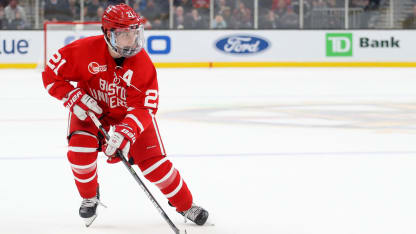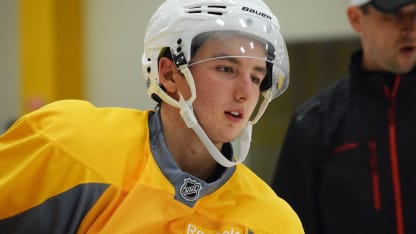Selected by the Predators in the fifth round of the 2016 NHL Draft - and his four-year collegiate career at Boston University now complete - Harper inked a two-year, entry-level contract with Nashville on Friday afternoon, a thrilling step in his quest to one day play in the NHL.
"It feels awesome," Harper said via conference call soon after the deal was announced. "It's a huge honor to be a part of an organization like the Nashville Predators. Just to get a deal done is extremely exciting, and to cap off four years of college in that way is very gratifying. I'm very grateful for the opportunity."
Listed at 5-foot-7 and 150 pounds, Harper's size is less than intimidating. But, what the 21-year-old winger lacks in height, he more than makes up for in skill and speed.
The New Canaan, Connecticut, native's career at Boston University got off to an impressive start, as he posted 13 goals and 37 points as a freshman. Health issues only allowed him to appear in 20 games as a sophomore, and although he was back full-time as a junior, his numbers weren't where he would have liked.
No matter, however, as Harper bounced back in a big way as a senior, tallying 14 goals and 37 more points in just 32 outings before the season was cut short due to the coronavirus outbreak. An alternate captain in his most recent campaign, Harper finished second on the Terriers in scoring - trailing only fellow Preds prospect David Farrance - while proving he was ready to take the next step in his career.
"I wanted to go out on the right note," Harper said of returning for his senior season. "I had areas that I could improve on going back for my senior year, whether that's putting points up, being an offensive leader, but other things like playing away from the puck, having a good stick and playing hard in the hard areas, things like that [were also important]. There's definitely some satisfaction going out the right way, doing things the right way and sticking to the process. I think going back to my senior year was absolutely the right decision, and it really helped me round out my game and add some more offensive ability to my game as well."




















